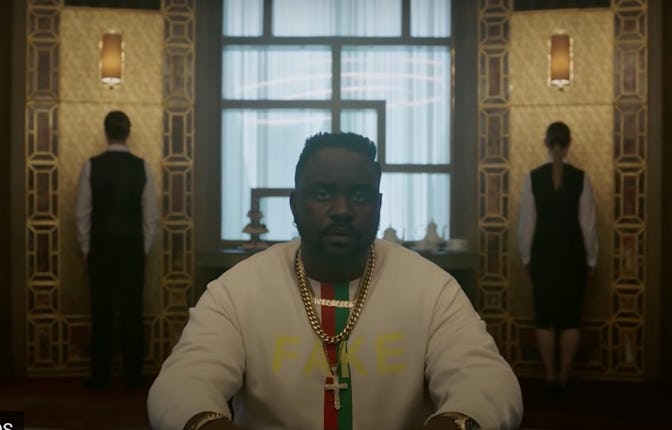The new ‘Atlanta’ trailer shows success can be horrifying
The latest preview of the show’s third season is ominously cryptic.

The paradox at the heart of Atlanta, and the tension that animates the show and makes it one of the most exciting and interesting works currently on a screen, is that Al and Earn’s version of a hero’s journey concerns them wanting to make it big at all costs, in spite of the show adamantly reinforcing how strangely horrifying it is the closer they get. This contradiction may come to a head in the show’s next installment, which comes out in 2022. In the cryptic first trailer for the long-awaited third season, ominous shots of European sculptures, empty hotel rooms in disarray, and a disillusioned Al, the show’s rapper protagonist, build up to a terrifying climax of an interpolated Sun-Ra song, “It’s After the End of the World.”
At the end of the last season, Al and Earn were on a plane, heading out for a European tour and finally seeming to push past a sometimes frustratingly local stardom in Atlanta. Yet in this trailer’s brief glimpse, it seems that their first taste of global excess is a gilded cage — or worse yet, it’s a horror.
While the show is ostensibly about the grind to the limelight, Atlanta not only never glorifies the come-up (or even its glimpses every now and then into real fame); conversely, it persistently frames it all as a cold, surrealist trip. Yet, for all its absurdist flourishes, the show is at its best when it veers more pointedly into horror. Two of the show’s most memorable episodes do this: season two’s iconic “Teddy Perkins” in which Darius is trapped in a mansion with Donald Glover in whiteface, along with, a few episodes later, the haunting manhunt of “Woods.”
The common line across these episodes is how the tone of horror is in dialogue with the disorientations of fame, and how that fame is warped by Blackness in America. Among the episode’s many ambiguous references and meanings, the unsettling and disturbed character of Teddy Perkins, who was forced into show business by an abusive father, most directly alludes to Michael Jackson, whose life, of course, was deformed by abuse and child stardom. In “Woods,” Al’s nightmare journey, in which he ends up stuck in the woods and followed by a strange man, is constantly in conversation with how he reckons with his career as a public star: his friend feuds with him about being real and building a brand, he is mugged by men on the side of the road, and the episode ends with him deciding to take a photo with a fan.
The ominous turn, then, as Al reaches new levels of success in this third season, may be the show’s best yet. Atlanta is at its best when it leans into surrealist terror to mirror its characters’ experiences. (Notably, the “FAKE” shirt that Al is wearing in the trailer might be seen as a callback to the fight he has with his friend in “Woods” about being fake, leading Al to storm off and end up lost among the trees — an allegory of fame in an episode.) For Al and Earn, Europe is likely just a portal to a foreign nightmare.